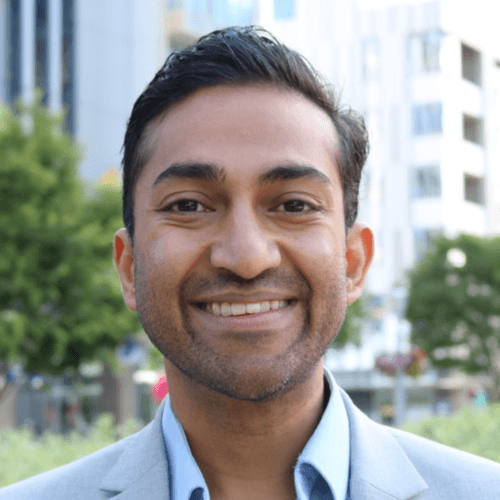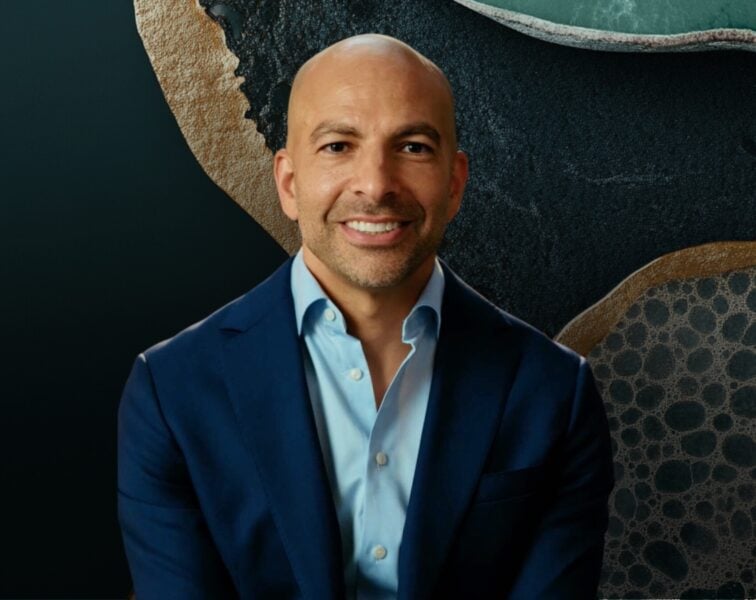Vinay Prasad is a practicing hematologist-oncologist who doubles as a “meta-researcher,” studying the quality of medical evidence, health policy, and clinical trials. In this episode, Vinay discusses the differences in clinical treatment from the existing medical evidence, often leading to useless, or even harmful, outcomes for patients. With a focus in oncology, he takes a deep dive into the field’s structural problems, which include the disconnect between progress and funding, drug costs, and financial conflicts of interest. He concludes with his “six hallmarks of successful cancer policy” as a potential roadmap to sustained progress against cancer and a way to avoid repeating the policy and practice mistakes of the past.
Subscribe on: APPLE PODCASTS | RSS | GOOGLE | OVERCAST | STITCHER
We discuss:
- Vinay’s background and unique perspective [3:15];
- Medical reversal—the disconnect between research findings and clinical applications in medicine [10:15];
- The uniquely challenging field of oncology [22:45];
- The importance of bedside manner with cancer patients [30:00];
- Structural problems in oncology—Problem #1: Huge costs for small improvements [37:00];
- Structural problems in oncology—Problem #2: Medical reversal—when medical practices are adopted based on low levels of evidence [40:15];
- Structural problems in oncology—Problem #3: Slow progress in cancer research (despite all the hype and propaganda) [45:00];
- Structural problems in oncology—Problem #4: The burden of payment is not matched with those making treatment decisions [54:45];
- “No-brainer” moves in oncology [1:06:45];
- “Fool’s gold” treatments in oncology [1:09:30];
- The six hallmarks of successful cancer policy [1:16:00];
- Cancer policy hallmark #1: Independence [1:18:00];
- Cancer policy hallmark #2: Evidence [1:28:15];
- Cancer policy hallmark #3: Relevance [1:31:30];
- Cancer policy hallmark #4: Affordability [1:32:00];
- Cancer policy hallmark #5: Possibility [1:47:00];
- Cancer policy hallmark #6: Agenda [1:52:00];
- Tumor genome sequencing and liquid biopsies [1:54:30];
- Vinay’s clinical philosophy, being skeptical without being too contrarian, and practicing medicine without perfect information [2:03:30]; and
- More.
Get Peter’s expertise in your inbox 100% free.
Sign up to receive An Introductory Guide to Longevity by Peter Attia, weekly longevity-focused articles, and new podcast announcements.
Vinay’s background and unique perspective [3:15]
Currently
- Practicing hematologist and oncologist
- Associate Professor of Medicine at UC San Francisco
- In addition to clinical care, does research on health policy, clinical trials, and decision-making
- “meta researcher:” studies the quality of medical evidence
- Author of over 250 academic articles and two books: Ending Medical Reversal (2015) and Malignant (2020)
- Recently started at UC San Francisco, where Peter went to get trauma training while he was a med student at Stanford
Background and unique perspective
- Vinay brings a unique perspective as his path to medicine wasn’t traditional
- He wasn’t a premed student and was a philosophy major in college
- Planned to major in science at Michigan State
- But took a philosophy course in college, prof reached out, and chose that as his major
- Not certain about his path until later in college
- Went to med school at the U of Chicago
- Peter says that his med school, Stanford, was “very relaxed” but suspects Chicago wasn’t
- Vinay says Chicago had a “really gritty, city hospital feel”
- “A lot of the faculty had trained on the east coast, and I think it really had that east coast mentality. It was an intense place. “
- “I remember yelling in the operating room was common, throwing things was common, people getting chewed out was common.”
The medical school experience
- There is a relevant book called Forgive and Remember written by a sociologist from Penn, Charles Bosk. Bosk spent 18 months late ’70s / early ’80s with a group of surgical residents to understand the culture of surgical training; the place not named but was likely Chicago, very toxic environment
- Peter says, “There’s a real east coast / west coast divide in medical education. … when I applied to my residency on the east coast at Hopkins, there was a real view that no one from Stanford could go there and do general surgery because the last guy who had gone and done general surgery who had come from Stanford had committed suicide.”
- Vinay did not really like med school, especially the first two years in the classroom where the focus was on memorization.
- “Those first two years I found it really demoralizing. I wasn’t somebody who was used to memorizing lots of things in a disconnected way, I was somebody who liked to think about things and think about them rigorously.”
- “It was only when third year started and I was there on the wards, and I was on internal medicine first as my clerkship, and I had some really great and influential practitioners of medicine who would teach me how they think about cases, that was when I started to feel okay. That’s the first moment that this felt like the right choice for me.”
- Assumed he’d practice clinical medicine in a private practice
Medical reversal—the disconnect between research findings and clinical applications in medicine [10:15]
- Vinay finished medical school with the belief that he was going to pursue private practice
- But that started to change in residency where he saw disconnect between clinical situations and research findings:
“There were things we were doing that were not supported by strong evidence, there were some things that appeared to run counter to the best evidence. It didn’t make a lot of sense to me.” – Vinay Prasad
This realization began his foray into medical research
- He started doing studies on ineffective practices that had become part of medical culture, termed “medical reversal,” and has published papers about it
- “I got into it from the point of view of a clinician who was struggling to make sense of what was going on around me, and that was really how I fell into research. I didn’t know that research would become my career, but the funny thing about life is you do something long enough and it starts to define you. …Eventually it starts to turn into a career.”
Stents — An example of medical reversal
{end of show notes preview}
Would you like access to extensive show notes and references for this podcast (and more)?
Check out this post to see an example of what the substantial show notes look like. Become a member today to get access.

Vinay Prasad, M.D., M.P.H
Vinay Prasad M.D., M.P.H. is a practicing hematologist-oncologist and Associate Professor of Medicine at the University of California San Francisco. He studies cancer drugs, health policy, and clinical trials and better decision making. He is author of these academic articles, and the books Ending Medical Reversal (2015), and Malignant (2020). He hosts the oncology podcast Plenary Session, and runs a YouTube Channel VinayPrasadMDMPH. He tweets @VPrasadMDMPH. [vinayakkprasad.com]



